Foundation Year
The proficiency strands understanding, fluency, problem-solving and reasoning are an integral part of mathematics content across the three content strands: number and algebra, measurement and geometry, and statistics and probability. The proficiencies reinforce the significance of working mathematically within the content and describe how the content is explored or developed. They provide the language to build in the developmental aspects of the learning of mathematics. The achievement standards reflect the content and encompass the proficiencies.
At this year level:
- understanding includes connecting names, numerals and quantities
- fluency includes readily counting numbers in sequences, continuing patterns and comparing the lengths of objects
- problem-solving includes using materials to model authentic problems, sorting objects, using familiar counting sequences to solve unfamiliar problems and discussing the reasonableness of the answer
- reasoning includes explaining comparisons of quantities, creating patterns and explaining processes for indirect comparison of length.
(source: www.australiancurriculum.edu.au)
Achievement Standard
By the end of the Foundation year, students make connections between number names, numerals and quantities up to 10. They compare objects using mass, length and capacity. Students connect events and the days of the week. They explain the order and duration of events. They use appropriate language to describe location.
Students count to and from 20 and order small collections. They group objects based on common characteristics and sort shapes and objects. Students answer simple questions to collect information and make simple inferences.
(source: www.australiancurriculum.edu.au)
- Plus Plan
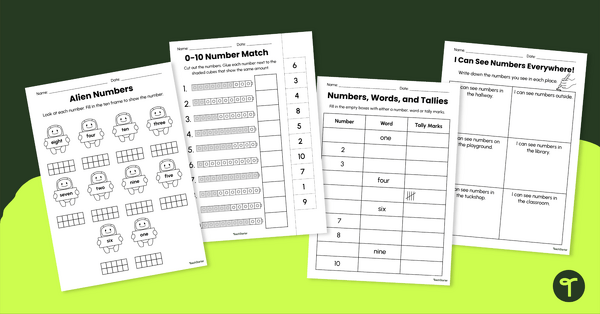
Number Recognition Worksheet Pack
Use this collection of number recognition worksheets to help your students practise recognising the numbers 0 through 20 in many forms.
- Plus Plan
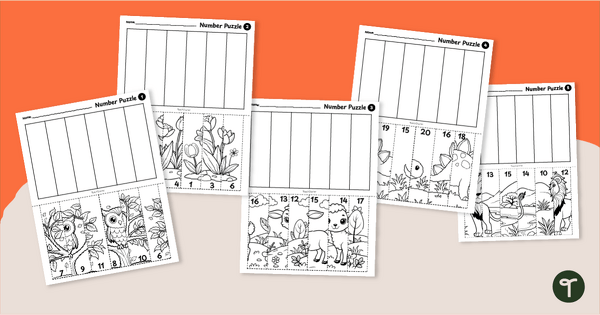
Number Ordering Puzzles
Help students order numbers up to 20 with a set of 8 cut-and-paste number ordering puzzles.
- Free Plan
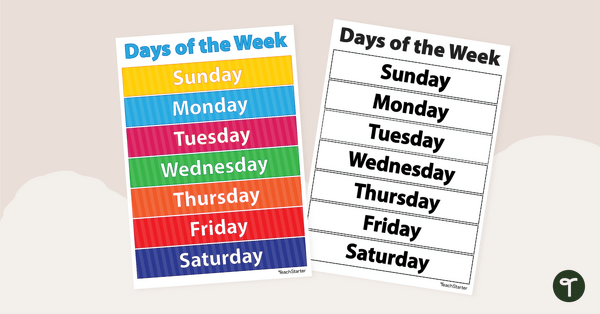
Days of the Week Poster
Display the days of the week with a bright and cheery Days of the Week Poster.
- Plus Plan
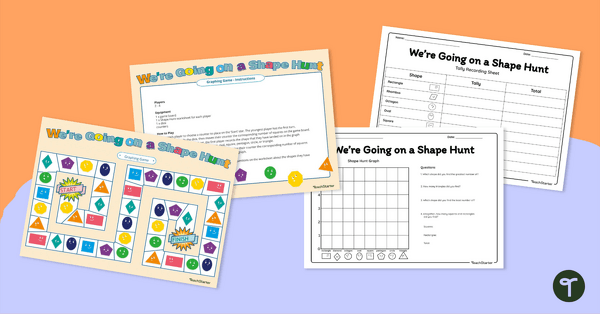
We're Going On a Shape Hunt! Graphing Game
Consolidate students' knowledge of 2D shapes while teaching about data collection, recording and graphing!
- Plus Plan
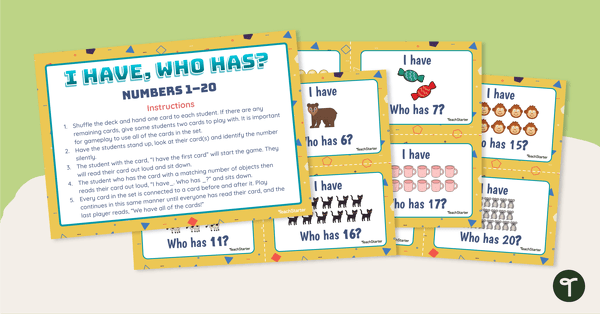
I Have Who Has – Numbers 1–20
Practise identifying numbers 1–20 with this set of “I Have, Who Has” game cards.
- Plus Plan
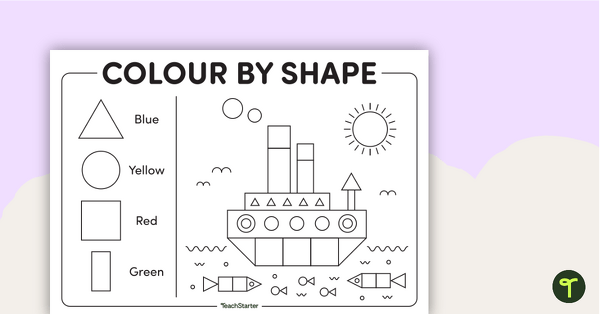
Colour by 2D Shape (Basic Shapes)
A set of five colour by shape worksheets.
- Plus Plan
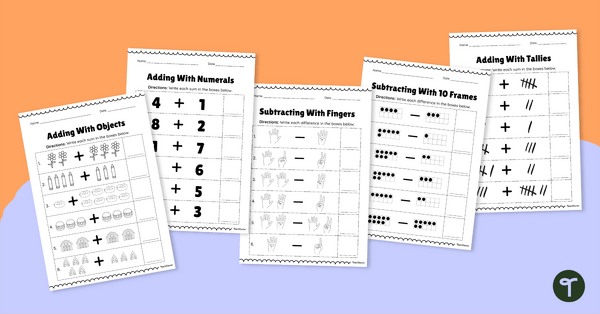
Single Digit Addition and Subtraction Worksheets
Share these single digit addition and subtraction worksheets with your foundation students to give them practice adding and subtracting with a wide variety of representations.
- Plus Plan
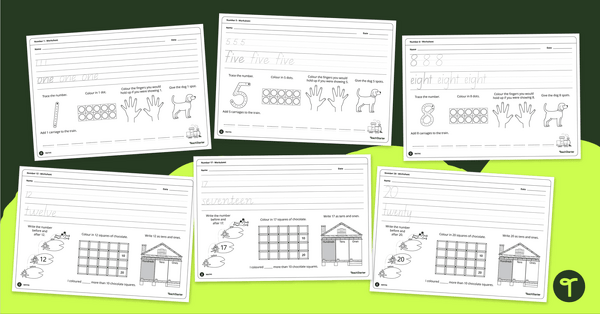
Number Handwriting Practise Worksheets
Provide number handwriting practise to your students with this set of worksheets for the numbers 0 through 20.
- Plus Plan
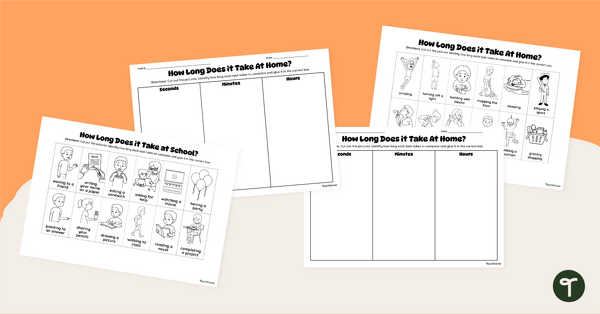
How Long Does It Take? – Seconds, Minutes & Hours Worksheets
Estimate the duration of time it takes to complete an action with a pair of Seconds, Minutes, or Hours? Cut and Sort Worksheets.
- Plus Plan
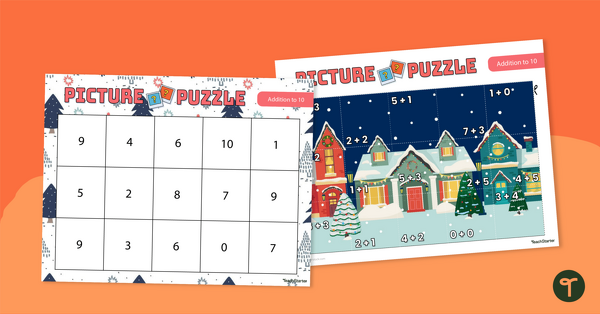
Holiday Maths Puzzle - Addition Up to 10
Review addition facts to 10 with a printable Christmas maths puzzle.
- Plus Plan
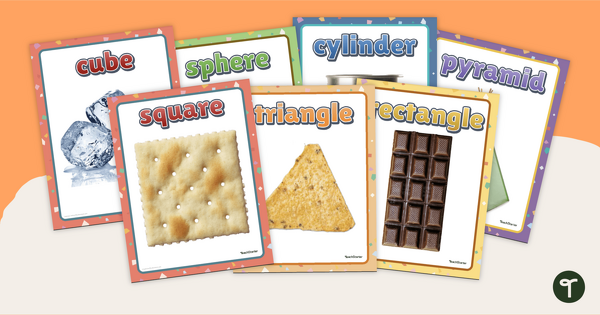
2D-3D Shape Posters
Use this set of 14 brightly coloured 2D and 3D shape posters to decorate your classroom and build academic vocabulary.
- Plus Plan
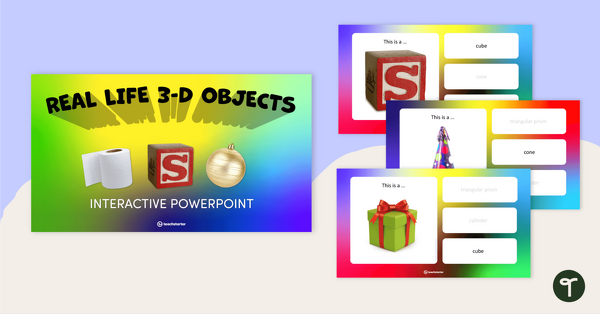
Real Life 3D Objects – Interactive PowerPoint
Explore three-dimensional objects in the real world with this engaging interactive activity.
- Free Plan
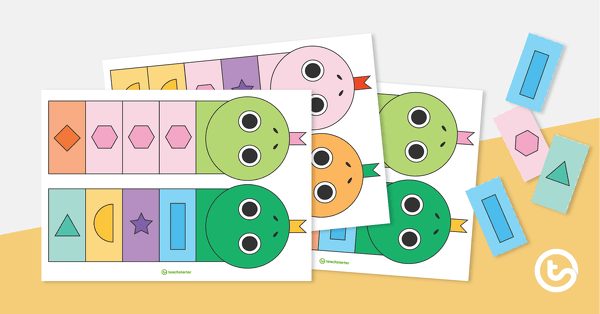
Python Patterns – Match-Up Activity
An activity for students to consolidate copying and creating patterns.
- Plus Plan
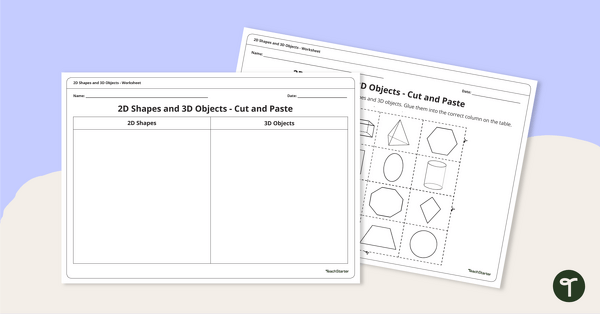
2D Shapes and 3D Objects - Cut and Paste Worksheet
Learn the difference between 2D shapes and 3D objects with this cut-and-paste worksheet.
- Plus Plan
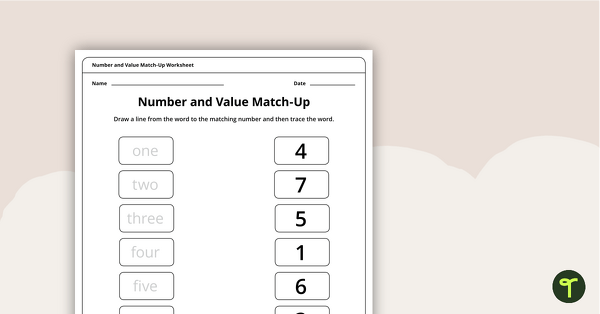
1-9 Number and Value Match-Up Worksheet
Match-up 1-9 numbers and words with this simple and easy to use worksheet.
- Plus Plan
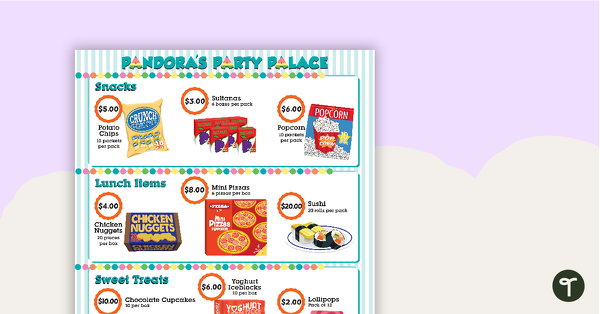
Pandora's Party Palace Maths Activity – Lower Years
16 mathematics problem solving task cards involving money in a real-world context.
- Plus Plan
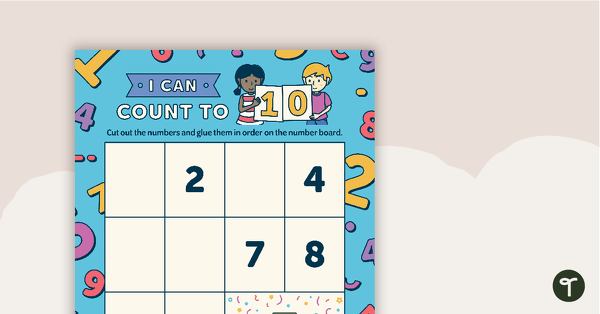
Counting to 10 Activity
Use this number activity to consolidate your students' knowledge of numbers 1-10.
- Plus Plan
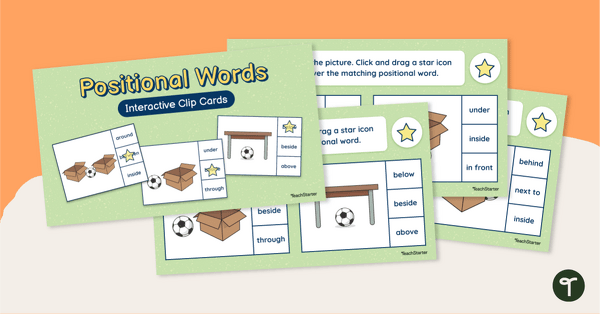
Position Words – Interactive Peg Cards
Teach position words with these interactive digital clip cards, designed to help young learners master prepositions.
- Plus Plan
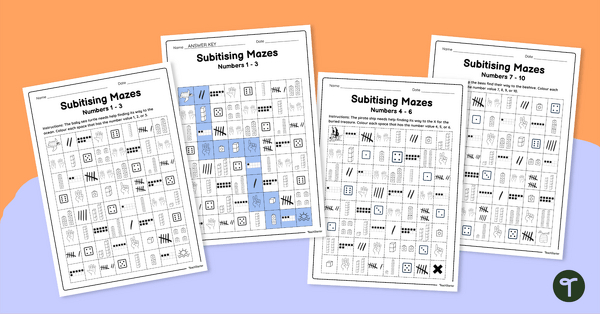
Subitising Mazes (Numbers 1 - 10)
Solve our subitising mazes to have fun practising subitising quantities up to 10!
- Free Plan
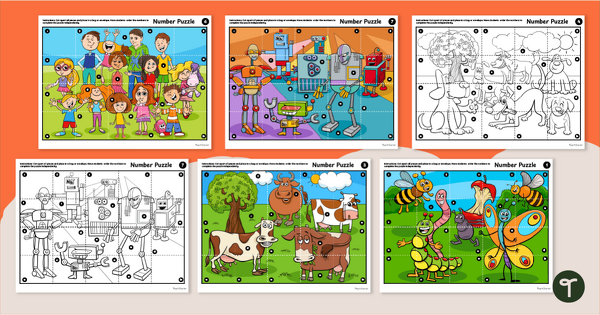
Numbers 1-20 Puzzle Pack
Identify and sequence the numbers from 1 to 20 with a set of Numbers 1-20 puzzles for kids.
- Plus Plan
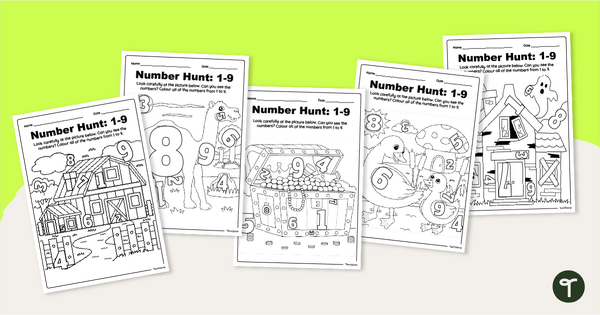
Find the Numbers - Worksheets for Kindergarten
Practise number identification with printable Number Hunt Math Worksheets for kindergarten.
- Plus Plan
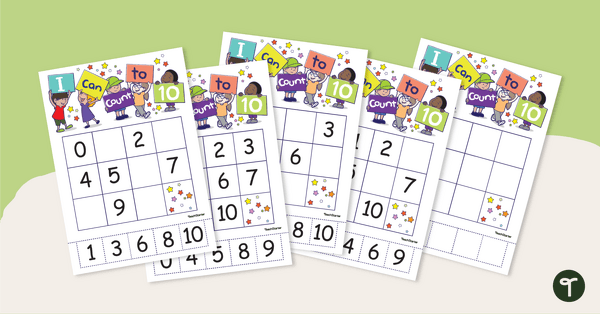
I Can Count To Ten – Cut and Paste Worksheet
Use this set of counting worksheets to help your students sequence numbers from 0 to 10.
- Plus Plan
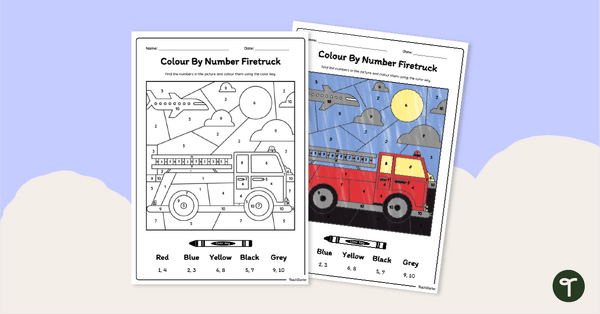
Firetruck Colour By Number Worksheet
Build number identification skills with a printable Firetruck Colour by Number Worksheet.
- Free Plan
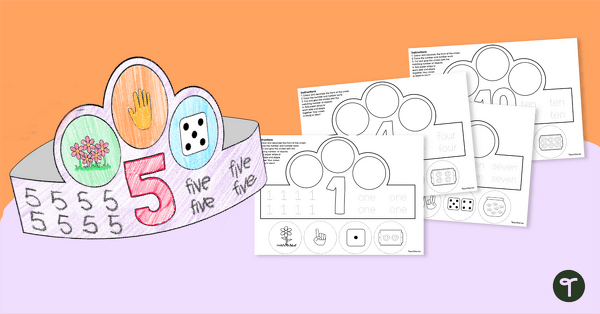
Counting Crowns Numbers 1-10
Create number crowns when learning to count to ten with this set of crown templates.
- Plus Plan
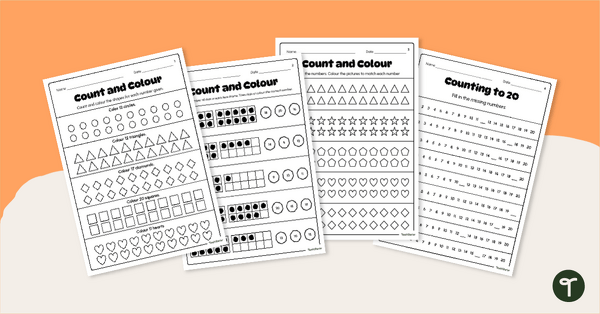
Counting 1-20 Worksheet Pack
Practise counting to 20 with this set of worksheets ready to go!
- Free Plan
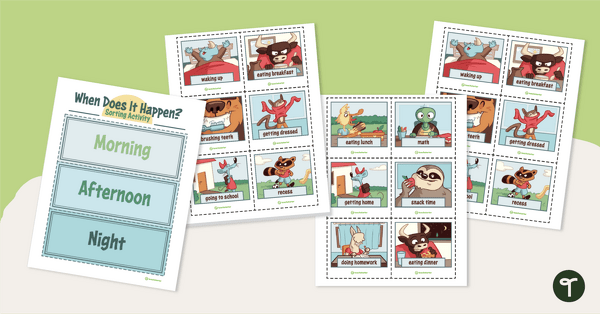
When Does It Happen? – Sorting Activity
Identify activities that happen in the morning, afternoon, and at night with a Time of Day Sorting activity for Foundations students.
- Free Plan
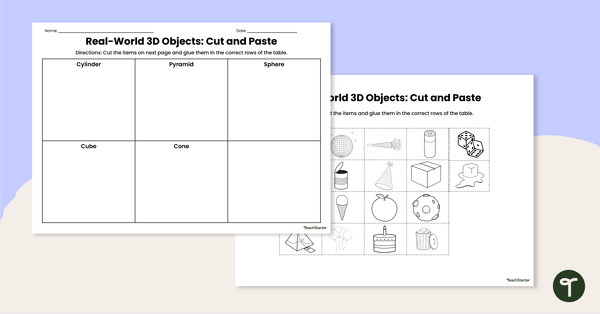
Real-World 3D Objects - Cut and Paste Worksheet
Explore three-dimensional objects in the real world with this cut-and-paste worksheet.
- Plus Plan
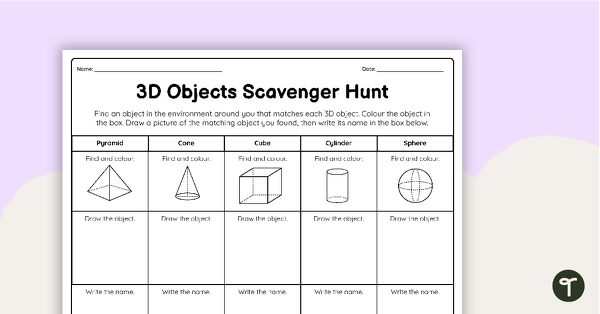
3D Objects Scavenger Hunt - Worksheet
Discover three-dimensional objects in the real world with a scavenger hunt.
- Plus Plan
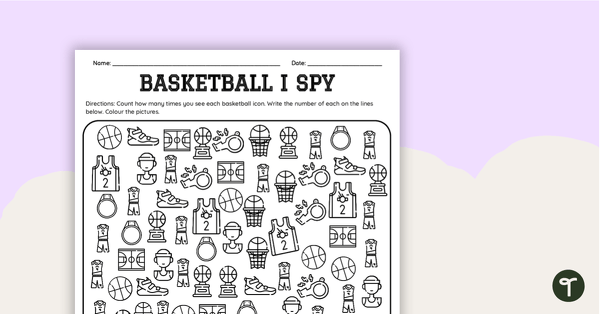
Counting and Colouring Basketball I Spy Worksheet
Have a bit of counting and colouring fun with a basketball worksheet for Prep.
- Plus Plan
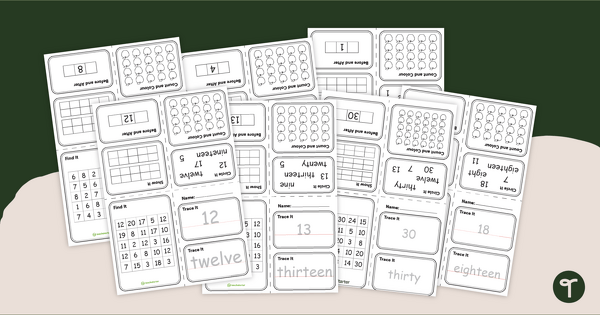
Numbers 1 - 20 Mini Number Books Pack
Introduce the numbers 1 - 20 with these mini books full of activities that are sure to sharpen students' number recognition skills.
- Plus Plan
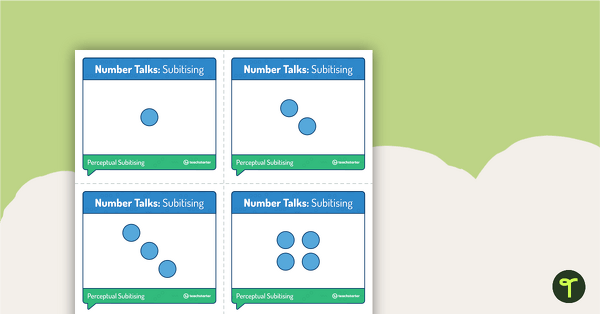
Subitise to 10 Task Cards — Number Talks
Help your students subitise to 10 and beyond with these number talk task cards.
- Plus Plan
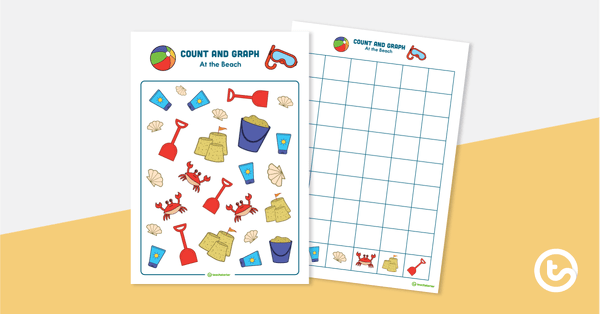
Count and Graph – At the Beach
A beach-themed hands-on activity to introduce graphing skills.